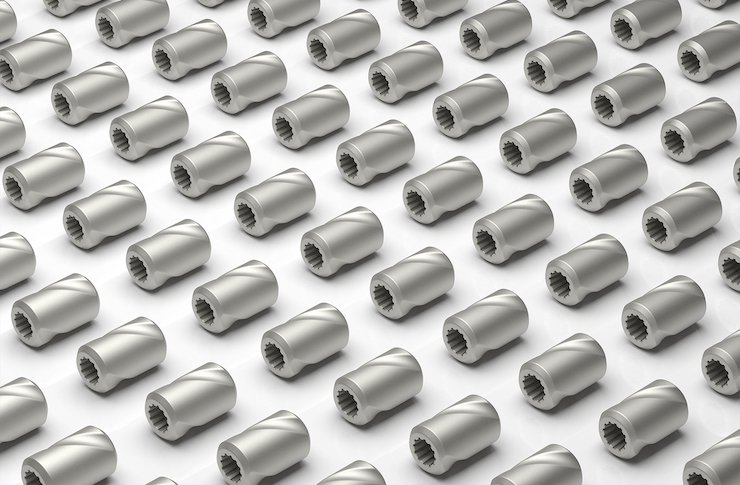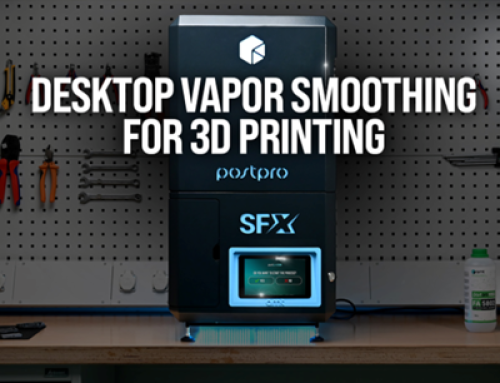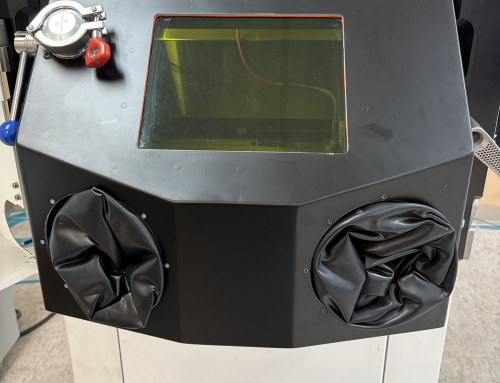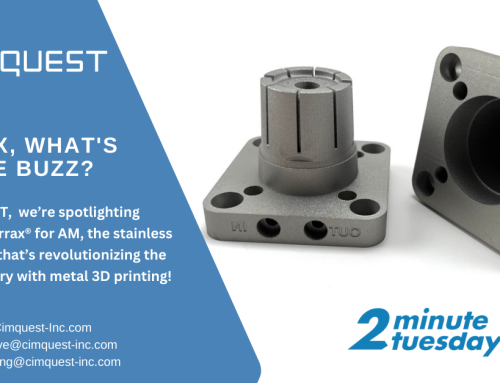A reprint from TCT magazine

Binder jetting enables the production of cams oil and gas or chemical processing applications in a single printing step.
Desktop Metal has added another material to its list of qualified metals for its additive manufacturing Production System.
The company has announced D2 tool steel, which has been qualified in accordance with ASTM testing requirements, will join 420 stainless steel, nickel alloy IN625, 4140 low-alloy steel, 316L stainless steel, and 17-4PH stainless steel in its Production System materials portfolio.
“Our materials science team is constantly working to develop new materials and processes to make 3D printing accessible to all industries and applications,” said Jonah Myerberg, co-founder and CTO of Desktop Metal. “We are responding to the demand from our customers across manufacturing and industrial industries for materials like D2 tool steel that enable the production of critical forming and cutting tools, and in various other applications where high hardness is valued.”
D2 tool steel is said to be a versatile high-carbon, high-chromium air-hardening tool steel characterized by its high hardness and compressive strength after heat treatment. This tool steel also offers extremely high wear resistance properties, dimensional stability, and corrosion resistance in the hardened condition. Using the material with Desktop Metal’s Single Pass Jetting (SPJ) technology, users can now 3D print parts for high-strength, high-temperature applications such as cold work metal forming tools, dies, and punches as well as injection molds with conformal cooling channels.
Highlighting the materials usability in heavy industry applications, Desktop Metal has shared how the material can be used for cams used in oil and gas or chemical processing applications to convert rotary motion into reciprocating linear motion in a machine. Compared to the traditional method of manufacture, cams can be produced in a single-step process to reduce both part cost and lead time, and facilitate production of numerous cam sizes in a single build, without the need for fixturing or tooling. Desktop Metal says D2 tool steel is critical for this application because of its hardness and corrosion resistance, which ensures a longer lifetime as the cam mechanically interacts with a sliding pin. In addition, because these components are often integrated into machines operating in harsh environments, the corrosion resistance provided by D2 ensures that the parts will perform as intended and not deteriorate.
For more information on Desktop Metal please click below.







Leave A Comment